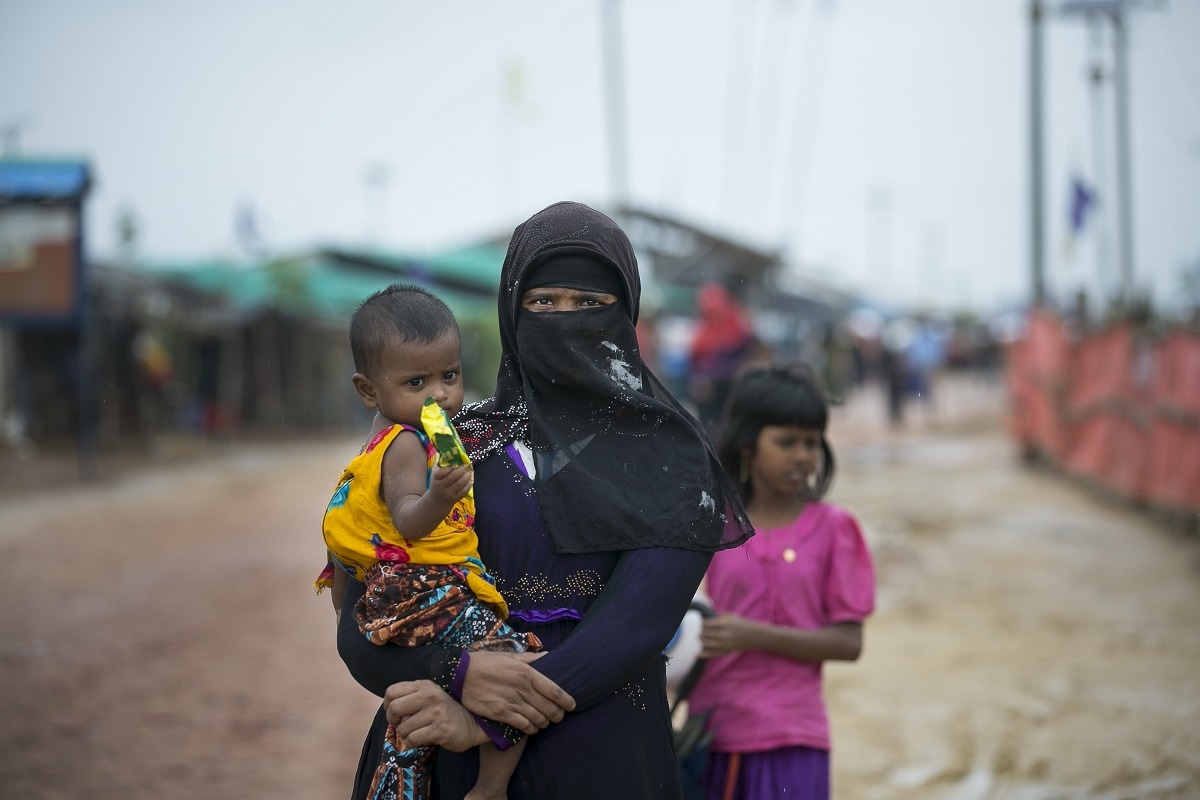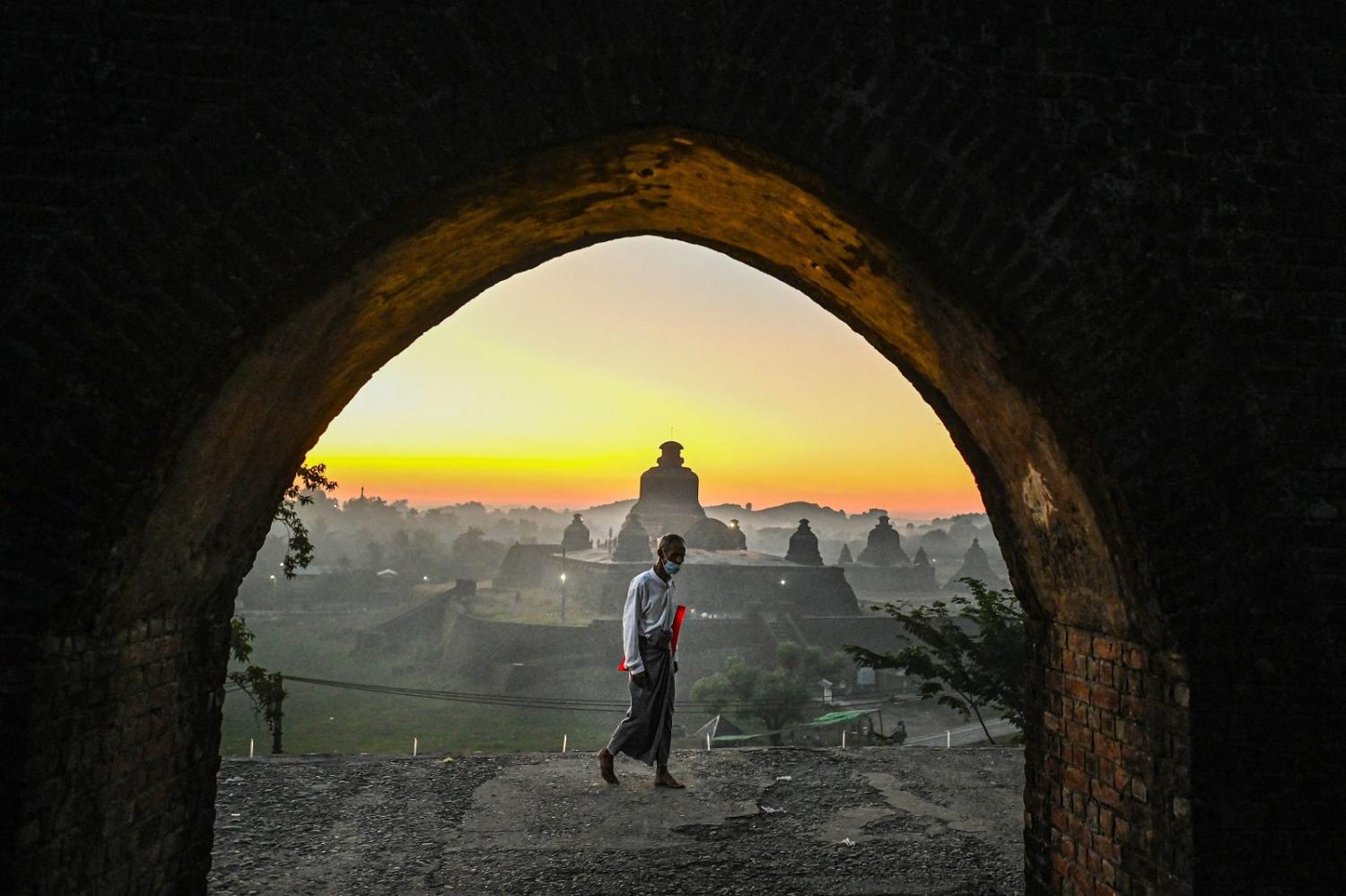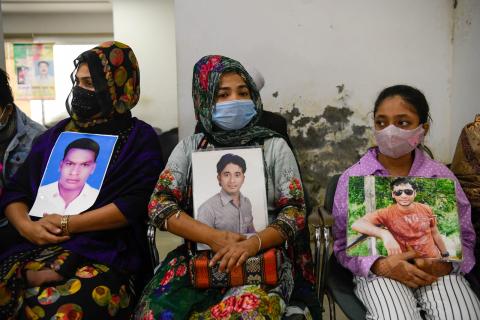The 2021 military coup in Myanmar sparked renewed civil conflict between Myanmar government forces, the Tatmadaw, and perhaps a dozen insurgent groups seeking their own ethnic states. Many of these conflicts have cross-border implications, but the insurgency in Rakhine state has particular consequences for the broader region. China has already been drawn into the conflict in Rakhine state to protect key interests, and India and Bangladesh could soon follow. This may produce unpredictable outcomes.
Over the last decade or more, Myanmar’s Rakhine state, which borders southern Bangladesh, has been the scene of brutal ethnic cleansing. In 2017, the Tatmadaw, working with local nationalists, violently expelled more than 700,000 Rohingya people – mostly Muslims – from Myanmar. Around a million now live in festering conditions in the world’s largest refugee camp at Cox’s Bazar in southern Bangladesh.
The Bangladesh government takes the position that the presence of the Rohingya people on their territory is only temporary and that, one way or another, they must be repatriated to their homeland in Rakhine. But all attempts have been stonewalled by Myanmar authorities.
The situation has been further destabilised in the last several months by renewed fighting between the Tatmadaw and local separatists, the Arakan Army, who have taken control of large areas, including the north, much of central Rakhine, and the border with Bangladesh. The Tatmadaw is in retreat and could be expelled from much of Rakhine state. This has some potentially far-reaching consequences for the broader region.
China has significant interests in Rakhine, principally the protection of its transport and economic corridor between southern China and the Bay of Bengal, a key element in the Belt and Road Initiative. This includes the newly-built Kyaukphyu port on the Bay of Bengal and a pipeline and planned road and rail links between the port and southern China. Together, these give China direct access to the Bay of Bengal for the first time in history, with considerable implications for the regional balance of power.
With renewed fighting in Rakhine, China is seeking to protect its investments in the Kyaukphyu corridor by providing substantial support for the Arakan Army, including money and arms. This allows China to gain leverage against the Tatmadaw and hedge its bets.

Chinese support for the Arakan Army also provides other benefits, particularly in relation to India’s competing Kaladan project in Rakhine, which would connect the Bay of Bengal with India’s northeast. The Kaladan project involves construction of new port facilities at Sittwe, a river transit system and a road to India’s Mizoram state. When completed, this would provide a direct link between the Indian Ocean and India’s northeast states, which are only otherwise tenuously connected with the rest of India.
Delhi hopes the Kaladan corridor will be a driver of economic development in India’s northeast. It is also anticipated that it will reduce India’s reliance on Bangladesh for transit routes – with some important implications for relations between those two countries.
But there have been long delays in completing the Kaladan corridor, and the Arakan Army has recently seized key territory along the corridor, which gives it considerable bargaining power with India. It is not clear whether India will do a deal with the Arakan Army, or if it will just double down on its long-running support for the Tatmadaw.
Neighbouring Bangladesh also has crucial interests in Rakhine. Fighting in the state is increasingly spilling across the border, stymying Bangladesh’s hopes to repatriate Rohingya refugees. Aside from whether Myanmar authorities would ever allow the return of the Rohingyas they recently expelled, the international community would not countenance the repatriation of refugees into a war zone. There seems little chance that Bangladesh could move forward with repatriation in the foreseeable future with the Tatmadaw's agreement.
For years, Bangladesh has approached its difficult neighbour with great caution, seeking to de-escalate and de-militarise cross-border violations. But with frustrations building in Dhaka, there may be a hardening in its response and a search for new approaches to the Myanmar problem.
The Tatmadaw claims that the Arakan Army already finds safe havens in ethnically related communities in remote Bangladesh border areas. Bangladesh officially denies this. But there may be growing temptations in Dhaka to assist the Arakan Army’s ambitions for an autonomous state. Indeed, Arakan Army control of Rakhine probably provides the only realistic pathway for the repatriation of at least some Rohingyas.
The Arakan Army recently pledged to recognise the citizenship rights of what they call “Myanmar Muslims” and to allow those who still remain in Rakhine to “participate” in any future administration. But many Rohingyas view these statements with deep scepticism given long-running Arakanese nationalist sentiments against Rohingyas. Indeed, some recent incidents, such as shelling of border areas, suggest that the Arakan Army may be trying to fuel tensions between Bangladesh and the Tatmadaw for their own ends.
The takeover of Rakhine state by the Arakan Army would come with risks for all concerned, including whether it could achieve lasting stability and security.
The Tatmadaw’s response is difficult to predict. India, too, has strong reasons not to see a group that is in league with China take control of Rakhine. A fully independent Rakhine state could also lead to the further splintering of Myanmar, with unpredictable consequences.
Of all Myanmar’s internal conflicts, this is the one to watch. The conflict in Rakhine, fuelled by major power competition and the Rohingya crisis, may have significant ramifications far beyond Myanmar’s borders.

